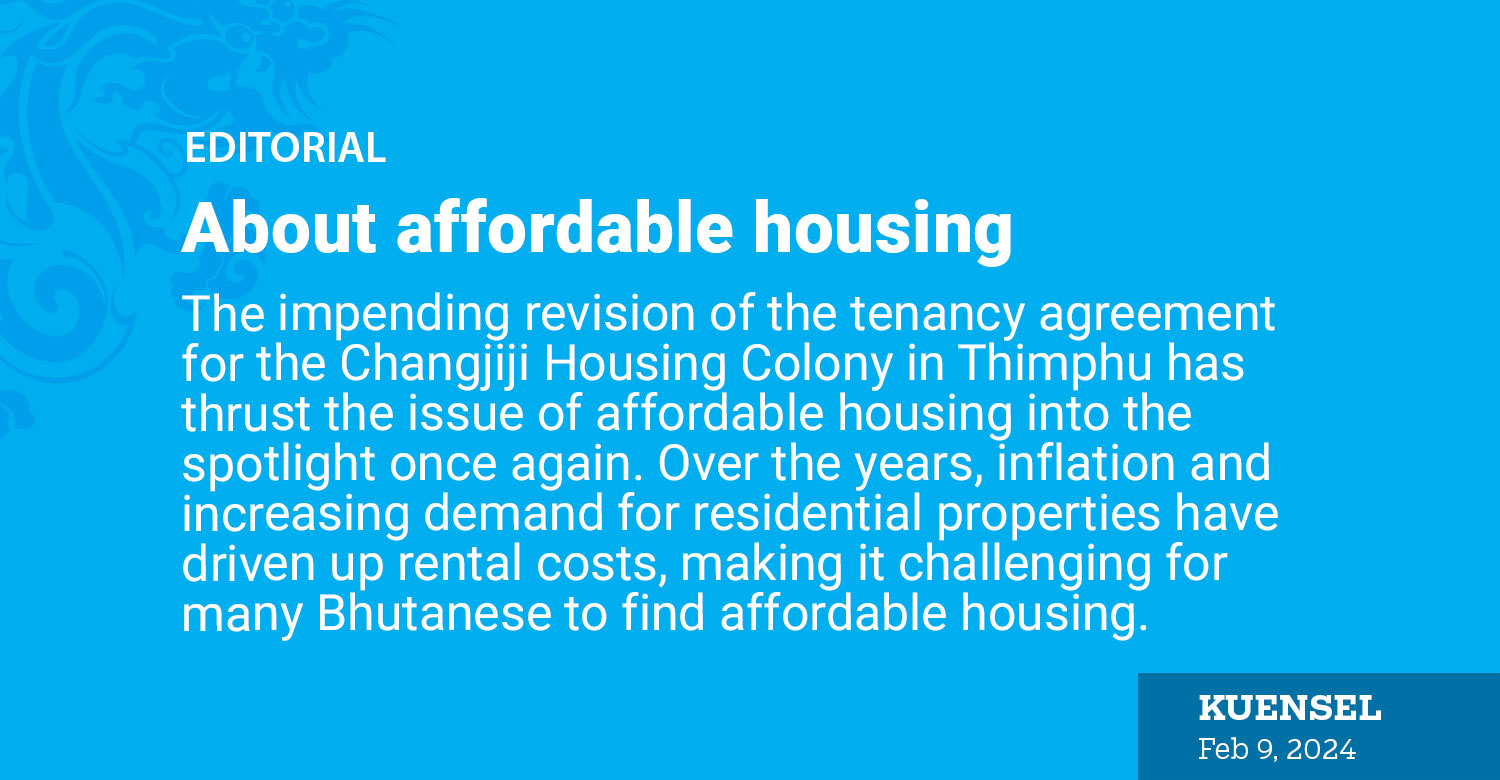The impending revision of the tenancy agreement for the Changjiji Housing Colony in Thimphu has thrust the issue of affordable housing into the spotlight once again. Over the years, inflation and increasing demand for residential properties have driven up rental costs, making it challenging for many Bhutanese to find affordable housing. The repercussions of this lack of affordability are multifaceted and require urgent attention from policymakers and stakeholders.
One of the most pressing issues stemming from the lack of affordable housing is its impact on the socioeconomic well-being of individuals and families. As rental prices soar, many households are forced to allocate a significant portion of their income towards housing expenses, leaving them with limited resources for other essential needs such as healthcare, education, and savings. This financial strain can perpetuate cycles of poverty and inequality, hindering social mobility and economic progress.
Furthermore, the shortage of affordable housing exacerbates homelessness and overcrowding in urban areas. Families unable to afford stable housing may be forced to live in inadequate or informal settlements, lacking access to basic amenities and services. Overcrowding not only poses health and safety risks but also strains infrastructure and public resources, further exacerbating urban challenges.
Addressing the issue of affordable housing requires a multifaceted approach that encompasses both short-term and long-term solutions. In the immediate term, measures such as rent control policies, subsidies for low-income households, and the renovation of existing housing stock can help alleviate financial burdens on vulnerable populations. Additionally, initiatives to increase the supply of affordable housing through public-private partnerships, incentivised development schemes, and streamlined approval processes are essential for meeting the growing demand.
However, addressing the root causes of the affordable housing crisis necessitates a more comprehensive strategy that tackles issues such as land availability, urban planning, and regulatory frameworks. By promoting sustainable urban development and inclusive housing policies, policymakers can create environments where affordable housing is not only accessible but also integrated with essential services, transportation, and employment opportunities.
Crucially, improving the management and administration of housing projects is paramount for ensuring the equitable distribution of housing resources. Transparent and efficient allocation processes, coupled with robust monitoring and enforcement mechanisms, can help prevent exploitation and ensure that housing benefits reach those who need them most.
Ultimately, the issue of affordable housing in the country requires a coordinated and collaborative effort from government agencies, private sector stakeholders, civil society organisations, and local communities. By prioritising housing affordability as a fundamental aspect of socioeconomic development, we can create more inclusive and resilient communities where all individuals have access to safe, decent, and affordable housing.


